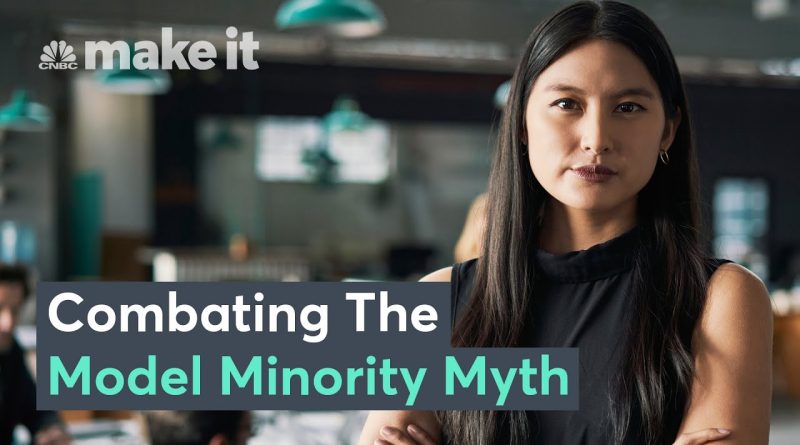How The Model Minority Myth Keeps Asian Americans Out Of Management
If you are Asian in America, you probably grew up with the idea that you had to keep your head down, get perfect grades, and work hard to achieve wealth and success.
Many of these ideas are because of the model minority myth—a set of assumptions about Asian American achievement and behavior that have held Asian Americans back from equal opportunity in academia, the workforce, and necessary government welfare. However, the perception of overachievement also leaves Asian Americans out of important equity conversations and suppresses their career growth.
In recent years, Asian representation among college students and in executive leadership has come under scrutiny. According to studies, nearly 60% of Asian Americans go to college. After school, they comprise 13% of working professionals but just 6% of executive leadership.
So is the career suppression of Asian Americans a hidden form of racism? If not, why exactly have Asian Americans been underrepresented in management roles, and what can we do about it?
For many years, anti-Asian biases and discrimination have largely gone unacknowledged. Until now, as the nation takes a closer look at the origins of discrimination in a climate of racial reckonings and increased violence.
Read more about about this story here:
In some ways, Quincy Surasmith says he didn’t feel like an outsider growing up. Surasmith, who is Thai- and Chinese-American, was raised in a part of L.A. that had a large Asian American community.
But while Surasmith excelled in his early school days, by high school, his grades were slipping. He was engaged in class and tested well, but he stopped completing his homework and his GPA suffered.
“I almost flunked out,” Surasmith says, “and [teachers] didn’t have an answer for that. They were like, well, why wouldn’t you want to achieve?”
What teachers didn’t consider was that, because of disruptions at home during his parents’ divorce, filling out extra worksheets after school wasn’t exactly his priority.
Additionally, “it was expected of us or assumed of us that we were kids who had parents who had steady incomes and access to money for extracurricular activities or prep classes, or even just having like a car to get to places,” Surasmith says. “But I know I didn’t necessarily have all those things.”
Surasmith’s experience is just one of countless examples of how Asian Americans have been subject to the model minority myth — a set of assumptions that Asian Americans are hardworking overachievers who have made it to the highest levels of success. By positioning Asians as the model minority race, it also assumes that Asians don’t need any help, and don’t require any further examination of how their race is discriminated against.
But these assumptions are just that, and the consequences of the stereotype go beyond the classroom.
“By grouping all the Asian Americans together and assuming all of them will do well just because you’ve measured them as a group, you end up ignoring the people who might not fit into that,” Surasmith says.
For decades, the model minority myth has kept Asian Americans out of important equity conversations and held members of the community back from equal opportunity in academia, the workforce and necessary government welfare.
The origins and consequences of the model minority myth
The term “model minority” was first coined in the 1960s by sociologist William Petersen for a New York Times Magazine article. It was used to describe the so-called “success stories” of some Japanese American families, who during World War II were forced into internment or pushed to enlist in the military as a means to prove their patriotism, yet were able to rebuild and reintegrate into society after the war.
Ellen Wu, an associate professor of history at Indiana University Bloomington, links this portrayal to essentially a rebranding effort as the U.S. rose to become a global super power. If America was truly the land of democracy and equal opportunity, U.S. leaders had to show that immigrants could overcome anything, even racist and exclusionary policies, to succeed here.
» Subscribe to CNBC Make It.:
About CNBC Make It.: CNBC Make It. is a new section of CNBC dedicated to making you smarter about managing your business, career, and money.
Connect with CNBC Make It. Online
Get the latest updates:
Find CNBC Make It. on Facebook:
Find CNBC Make It. on Twitter:
Find CNBC Make It. on Instagram:
#CNBC
#CNBCMakeIt
How The Model Minority Myth Keeps Asian Americans Out Of Management
source

